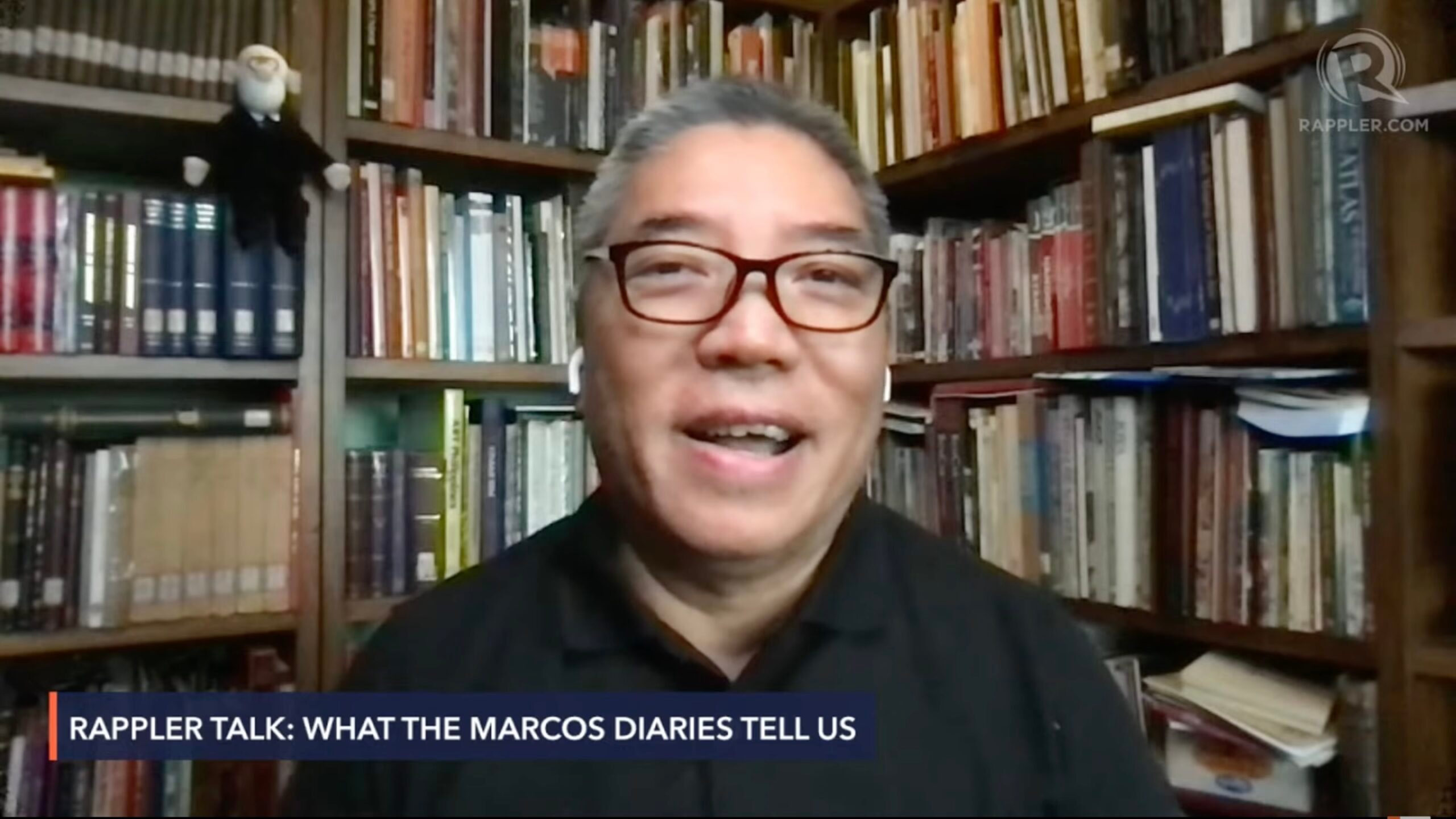SUMMARY
This is AI generated summarization, which may have errors. For context, always refer to the full article.

On Thursday, March 3, Rappler editor-at-large Marites Vitug sat down with historian Ambeth Ocampo.
Ocampo shared what he took from reading the diaries of the dictator Ferdinand Marcos. The strongman wrote an entry every day from 1970 to 1973 before failing to follow through. Ocampo said the latest entry found was dated 1983.

Ocampo has been reading the diary of Marcos as he prepared for its publication with his annotations. Ocampo shared his takeaways with Rappler. Here are four of them.
1. Read the diaries with caution
Ocampo emphasized that Marcos’ diary was self-referential, so Marcos naturally wrote about himself in a positive light and wrote about his enemies unfavorably.
There were facts that he omitted and, consistent in lying, he embellished his war accomplishments.
This is why, Ocampo noted, he aimed to publish the diary with annotations, to point out inconsistencies and verified pieces of Marcos’ account.
2. The dictator loved his children
Ocampo noticed that Marcos wrote with a “soft tone” when he wrote about his family, especially his children. He showed that Marcos insulted his political enemies, calling Senator Jose Diokno as “self-centered” and Ninoy Aquino as a “liar.”
Marcos, Ocampo said, read the papers and particularly scorned the Manila Chronicle. Ocampo said Marcos complained about critical pieces against him despite his government already controlling the media.
Meanwhile, he showed concern for his children, even his son and namesake Ferdinand “Bongbong” Marcos Jr, who he described as their “principal worry” because he was “lazy.”
3. Marcos saw the future
Ocampo noted that Marcos had an acute sense of history, but the dictator used it to further himself. The diary itself is proof of this as it could be used by biographers and even his supporters to tell a version of history through his eyes, including the lies and embellishments.
Ocampo referred to Marcos’ interview with Playboy where he said “History is not through with me yet.”
Decades later, the Marcos family has led a campaign to clean its family name, while Marcos Jr was leading presidential polls. (READ: Networked propaganda: How the Marcoses are using social media to reclaim Malacañang)
4. It’s not all about Marcos
Ocampo said that after reading through the dictator’s diary, he said the lesson should not just be a matter of condemning Marcos, but a matter of asking “What was it that made Marcos possible?”
He said he did not want to believe that everything that Marcos did was wrong. He wondered whether Marcos had wanted to become a dictator and what pushed him to become one. Vitug pointed out the enablers and accomplices also had a hand in making the dictator.
Ocampo said this was why it was important to Marcos’ diaries – to see it from his perspective.
“If we don’t listen, we won’t understand, we will only see one side of the story,” Ocampo said. – Rappler.com
Add a comment
How does this make you feel?
There are no comments yet. Add your comment to start the conversation.